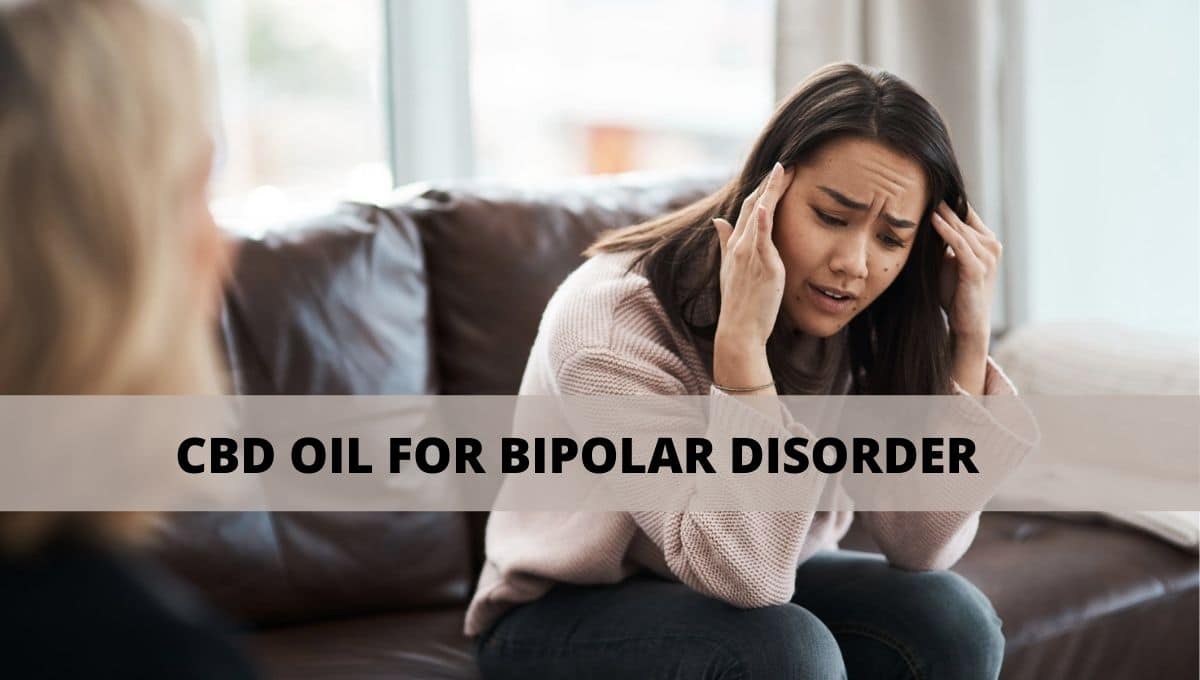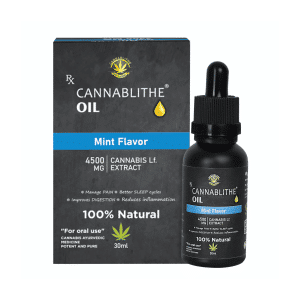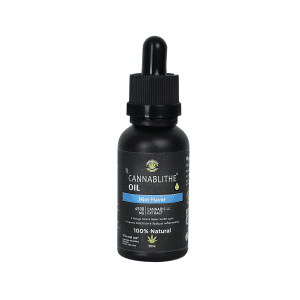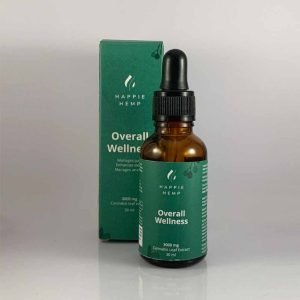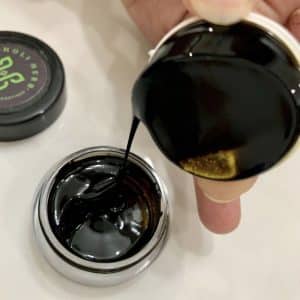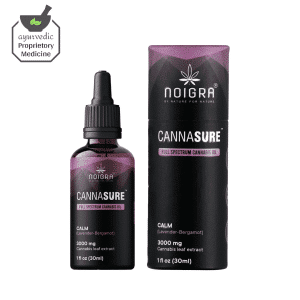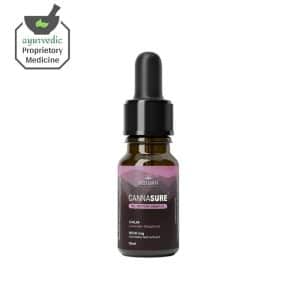Research on the effects and usage of CBD for bipolar disorder patients is limited. But the available evidence doesn’t really support the idea that CBD can help with bipolar disorder.
According to a review published in 2020, CBD may be beneficial for treating mental health conditions such as social anxiety and schizophrenia. According to the review, there is limited evidence that CBD can be used to treat bipolar disorder, so further research is needed.
Top CBD Oil for Bipolar Disorder Available in India
-
₹3,199Select options This product has multiple variants. The options may be chosen on the product page
In order for your mood to be stabilized, neurotransmitters in your brain communicate with each other. Your mood, feelings, and thoughts are regulated by chemical messengers. But for our brains to function properly, they need to be in balance; otherwise, they will either become hyperactive or hypoactive. Neurotransmitter fluctuations may result in a range of mood disorders, including bipolar disorder.
The endocannabinoid system (ECS) is responsible for the functioning of neurotransmitters and their receptors. Research on the ECS has given researchers a better understanding of how different chemicals in your body interact, what happens when the communication system fails, and how to potentially restore neurochemical balance.
In today’s lesson, we will explore the role the endocannabinoid system plays in the development of the bipolar disorder, a disorder whose symptoms negatively impact your daily life, as well as those around you.
In addition, we’ll explain how cannabidiol – may support healthy communication between neurotransmitters, and how CBD for bipolar disorder contributes to the wellbeing of patients.
Let’s jump right into this without further ado.
How does CBD work?
Humans have an endocannabinoid system (ECS), which assists in keeping systems functioning properly. There are endocannabinoids, enzymes, and receptors in the ECS.
Endocannabinoids are naturally produced by your body. Anandamide (AEA) and 2-arachidonoylglycerol (2-AG) are two of the most commonly known substances. Your body responds to them by binding to CB1 and CB2 receptors to relieve pain. Endocannabinoids are broken down by enzymes after they have completed their job.
Experts are still unsure of how the ECS works, but research suggests it may be involved in:
- metabolism
- chronic pain
- mood
- sleep
- inflammation
- immune system responses
- stress
- appetite and digestion
- learning and memory
Since CBD is a cannabinoid, it can bind to your body’s endocannabinoid receptors. But experts don’t know how the ECS and CBD interact. Some believe that CBD stops enzymes from breaking down endocannabinoids, but that’s just one theory.
What researchers are pretty sure of is that CBD and THC work better together than alone. This happens due to the entourage effect. That’s why full-spectrum CBD may have more pronounced effects than other forms of CBD.
If you want to reap the full benefits of CBD, choose full-spectrum products – unless you want to stay away from THC. It’s better to use a broad-spectrum product or an isolate product in that case.
When used for bipolar disorder, is CBD for bipolar disorder safe?
According to the World Health Organization, CBD is considered safe for use
Food and Drug Administration (FDA) has not approved CBD products available over-the-counter. While the FDA sends warning letters to companies that make false health claims about CBD, it doesn’t regulate what actually goes into the products. The quality can vary greatly as a result.
What are the different types of CBD products?
CBD can be found in numerous forms, including:
- CBD oil
- CBD edibles (including gummies)
- CBD capsules
- CBD topicals
Pros & Cons of Using CBD Oil for Bipolar Disorder
The Pros:
- In vitro studies show that CBD is a neuroprotectant, including reduction of oxidative stress and free radical damage. These factors are believed to contribute to the development of bipolar disorder.
- CBD promotes healthy stress responses. It can also alleviate both acute and chronic anxiety.
- CBD has anti-inflammatory properties. Inflammation in the brain can damage neurons and result in neurotransmitter imbalances. CBD has been shown to have anti-inflammatory effects on both animals and humans.
- CBD is non-intoxicating, so you won’t get high from it. Because intoxicants are known for aggravating the symptoms of bipolar disorder, this is a particularly valuable trait.
- You can’t get addicted to CBD.
- There are no serious side effects associated with CBD compared to commonly prescribed antipsychotic drugs.
The Cons
- Due to the fact that the CBD market is largely unregulated, it’s possible to buy a mislabeled product that contains significant amounts of THC, even if the label says otherwise.
- The animal studies and preclinical trials supporting the benefits of CBD for bipolar disorder provide the majority of the evidence. It is necessary to conduct more clinical studies to determine whether CBD’s effects are consistent across large populations.
How to Use CBD for Bipolar Disorder?
- CBD Oil – CBD oil is the most common form of cannabidiol due to its ease of use and dosage precision. It is a food-grade oil that contains hemp extracts. As a result of the infusion in carrier oils, CBD is more bioavailable, allowing lower doses to remain effective. Such a product is easier to apply and dose. CBD oil is taken under the tongue, where the user holds it for up to a minute before swallowing.
- CBD Capsules – Capsules are a good choice if you dislike the natural taste of CBD oil. Furthermore, they eliminate the guesswork involved with dosing CBD in the liquid form since each capsule contains a premeasured dose. To take the capsules, simply take as many as you need to match your dosage and swallow them with water. Due to the digestion process, capsules have a delayed onset, usually kicking in after 40–90 minutes.
- CBD Edibles – Edibles like gummies and honey sticks provide a fun way to supplement CBD. When it comes to CBD edibles, the only concern is the lower potency of the final dose. Edibles require digestion before they can be released into the bloodstream, so dosage is often inconsistent and unreliable.
How Often Should You Take CBD for Bipolar?
In order to treat bipolar disorder successfully, consistency is crucial. It is only by being consistent that you can manage the symptoms of the condition and level the endocannabinoid deficiencies in your system, which is one of the probable causes of bipolar disorder.
If you decide to take CBD by mouth, you should take it several times a day for the best results. CBD oils are relatively long-lasting, lasting up to six hours, allowing users to divide the dosage into two portions. For products like CBD hemp flowers or CBD vapes, you’ll probably need to use them more often, as vaporized CBD has a shorter duration, usually between 3–4 hours.

